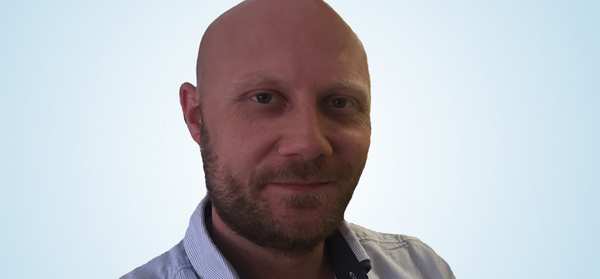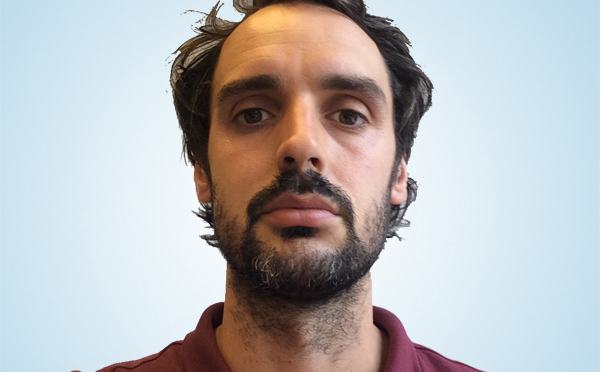From the housing crisis to BAFTA success
Daisy-May Hudson’s film about her family’s homelessness has won praise from BAFTA. She talks to Martin Hilditch about it, and about what she is looking for from entrants to Inside Housing’s Reel Homes film competition, which she is judging
Video:
F
Daisy-May Hudson is only one film into her career as a producer and director, but the powerful Half Way has already resulted in her being named a BAFTA Breakthrough Brit.
The film, which has been showing on theatrical release for the past two months, charts her mother along with Ms Hudson and her younger sister becoming homeless after they are given notice on their private rented home. It’s moving, funny and heartbreaking in equal measure. Ms Hudson describes it as being “not just about the issue of homelessness - it is a portrait of a family and how much love there is between us”.
Coping mechanism
Frankly, if Inside Housing had launched its Reel Homes film competition - which is being run to help develop a new film about homelessness or the housing crisis - a couple of years earlier, Half Way would have been a guaranteed winner. This year we’re lucky to have landed Ms Hudson as a judge. The competition is open for entries until 10 February.
Talking to her about Half Way is a slightly odd experience, because you’re both praising an incredibly made film and talking about one of the most traumatic times in the director’s life. Equally, as Ms Hudson is generally behind the camera and the narrative focuses more on her mother and sister, there are also questions about the role that making the film played for Ms Hudson while she was moving from one temporary home to another.

The poster for Daisy-May Hudson’s film, Half Way
Ms Hudson says making the film was an integral part of coping with the experience. “I think doing the filming really allowed me to cope emotionally with what was going on,” she says. “That was a really important process for me. It allowed me to be in a state of mind that made me able to cope. I think that’s why my family let me film. Because they knew how important that was.”
It is, of course, family that lies at the heart of the film. Its power comes both from the anger you feel at their circumstances but also from the strength they demonstrate throughout. There are moments that make you laugh out loud as well as cry, such as the hilarious occasion Ms Hudson’s sister takes her to task for making a film that is far too serious and needs more light relief.
Painful process
The film feels so truthful, yet with 250 hours of footage recorded, clearly there were a lot of editorial decisions to be made. How did Ms Hudson go about this?
“You can tell lots of different versions,” she admits. “We tried one edit and it seemed like my sister wasn’t present enough in the film. It was about how we could make them the most truthful representations of who they are.”
The editing process was “quite a painful one”, she says. Although the family had moved into a permanent home (this isn’t a spoiler - this is definitely a film that is about the journey), Ms Hudson was still processing the events.
“I was coming to terms with all my emotions that I hadn’t processed while living in the hostel.”
“I was coming to terms with all my emotions that I hadn’t processed while living in the hostel,” she says. “When we were finally housed, I didn’t want to look at any of the footage for a long time. I was suffering post-traumatic stress. I just wanted to completely escape it. It was my friends who were producers who provided a lot of emotional support.”
Giving people a voice
Certainly it must have been difficult to relive the “claustrophobia” of hostel life where “everything starts to feel like a prison”. But Ms Hudson says the recent screenings have been a much more joyful experience, with an “unbelievable” reaction from audiences across the UK.
“A woman who has been in temporary accommodation for a year said at one screening that the film had given her the strength to keep going,” Ms Hudson says. “Someone stood up and said ‘I am a single mum and thanks so much for giving us a voice’.”
She wanted to challenge the stigma attached to homelessness - which saw her sister pretend to live somewhere else and meet friends away from their temporary accommodation. There is also a challenge to housing providers. Much of the communication the family receives throughout the film is officious and vague. You’ll never hear the words “in due course” again without feeling their pain.
“The system is very hard to navigate,” Ms Hudson says. While there is learning for councils, particularly in terms of the way they communicate with people who are homeless, she emphasises that ultimately they need to be properly resourced by government.
“I am looking for exciting, honest and thoughtful stories about housing that can galvanise.”
Ms Hudson is now writing a screenplay and researching another documentary. She says she wants to focus on “telling stories of working-class experience in Britain to counter a lot of the mainstream narratives we have that demonise working-class people”.
Does she have any advice for entrants to the Reel Homes film competition?
“Housing is a basic human right and I think we should be doing all we can to create a dialogue about this. I am looking for exciting, honest and thoughtful stories about housing that can galvanise.”
Half Way certainly provides entrants looking for inspiration with the perfect place to start.



